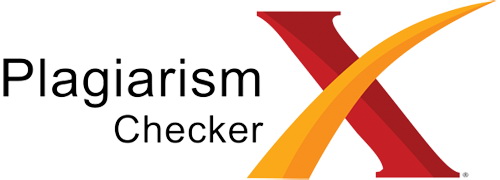Implementation of Project Based Learning Though Merdeka Curriculum in Teaching Speaking Skills
DOI:
https://doi.org/10.53863/ejou.v4i01.986Keywords:
Merdeka Curriculum, PjBL, Speaking, TeachingAbstract
Based on the phenomenon of new policy changes in Indonesian education, namely implementing an independent curriculum with the characteristics of a Project-Based Learning (PjBL) method. This study aims to describe teachers' perceptions in implementing Project Based Learning (PjBL) through Merdeka Curriculum using social media in teaching English speaking skills. The research design of this study is descriptive qualitative. The data collection of this research were interview, observation, and documentation. The data analysis technique used was Miles & Huberman (Display, Reduction, and Conclusion). The results showed that the implementation of Project-Based Learning (PjBL) through the Merdeka Curriculum in private vocational high schools has been implemented but not optimal because it has several obstacles related to implementation time, student motivation, and lack of facilities needed. However, the implementation of the Merdeka curriculum has a very good effect on teachers and students by implementing a learning process that focuses on students' ability to realize Speaking Skill teaching using Project Based Learning (PjBL) in accordance with the Merdeka Curriculum.
References
Aghayani, B., & Hajmohammadi, E. (2019). Project-Based Learning Promoting: EFL Learners’ Writing Skills. Language and Language Teaching, 22(1), 78–85.
Almulla, M. A. (2020). The Effectiveness of the Project-Based Learning (PBL) Approach as a Way to Engage Students in Learning. SAGE Open, 10(3). https://doi.org/10.1177/2158244020938702
Baharullah, Satriani, S., Arriah, F., & Hidayah, A. (2022). Implementation of the Merdeka Belajar Curriculum Through the Application of Project-Based Learning Models To Improve Student Learning Outcomes in Mathematics Learning. MaPan, 10(2), 334–347. https://doi.org/10.24252/mapan.2022v10n2a6
Fitria, T. N., & Pattiasina, P. J. (2022). Non-EFL Students ’ Experience of Speaking English?: A Project Based Learning in Making Video. August. https://doi.org/10.32478/al-mudarris.v5i1.950
Juliani, Herlina, & Harunasari, S. y. (2019). Meningkatkan Keterampilan Berbicara Siswa melalui Project Based Learning Menggunakan Instagram. Prosiding Seminar Nasional Pendidikan STKIP Kusuma Negara, 6 Oktober(Prosiding Seminar Pendidikan), 1–14. http://jurnal.stkipkusumanegara.ac.id/index.php/semnara2019/article/view/340
Kebudayaan, K. P. dan. (2022). Keputusan Menteri Pendidikan, Kebudayaan, RIset, dan Teknologi Republik Indonesia Nomor 56/M/2022 Tentang Pedoman Penerapan Kurikulum Dalam Pemulihan Pembelajaran. Menpendikbudristek, 1–112. jdih.kemendikbud.go.id
Krishnapatria, K. (2021). MBKM Curriculum in English Studies Program: Challenges and Opportunities. ELT in Focus, 4(1), 15–38. https://doi.org/10.35706/eltinfc.v4i1.5276
Mack, N., Woodsong, C., M.MacQueen, K., Guest, G., & Namey, E. (2005). Qualitative Research Methods: A DATA COLLECTOR’S FIELD GUIDE. FHI & Usaid.
Maipita, I., Dalimunthe, M. B., & Sagala, G. H. (2021). The Development Structure of the Merdeka Belajar Curriculum in the Industrial Revolution Era . Proceedings of the International Conference on Strategic Issues of Economics, Business and, Education (ICoSIEBE 2020), 163(ICoSIEBE 2020), 145–151. https://doi.org/10.2991/aebmr.k.210220.026
Miles, M. B., & Huberman, A. M. (1994). Qualitative Data Analysis 2nd edition (1994)_An Expanded Sourcebook.pdf (p. 354). SAGE Publications, Inc.
Ningrum, A. S. (2022). Pengembangan Perangkat Pembelajaran Kurikulum Merdeka Belajar ( Metode Belajar ). Prosiding Pendidikan Dasar, 1, 166–177. https://doi.org/10.34007/ppd.v1i1.186
Norawati, R., & Puspitasari, Y. (2022). The Learning Skills of English as a Foreign Language (EFL) Student-Teachers in Project-based Learning and Case-based Learning. JEELS (Journal of English Education and Linguistics Studies), 9(2), 255–277. https://doi.org/10.30762/jeels.v9i2.512
Pujiono, A. (2021). Media Sosial Sebagai Media Pembelajaran Bagi Generasi Z. Didache: Journal of Christian Education, 2(1), 1. https://doi.org/10.46445/djce.v2i1.396
Sari, A. M., Suryana, D., Bentri, A., & Ridwan, R. (2023). Efektifitas Model Project Based Learning (PjBL) dalam Implementasi Kurikulum Merdeka di Taman Kanak-Kanak. Jurnal Basicedu, 7(1), 432–440. https://doi.org/10.31004/basicedu.v7i1.4390
Sari, P. P., & Ardianti, D. (2021). Implementation of Problem Based Learning ( PBL ) on Interactive Learning Media. Journal of Technology and Humanities, 2(2), 24–30. https://jthkkss.com/
Woods, K., Gomez, M., & Arnold, M. G. (2019). Using social media as a tool for learning in higher education. International Journal of Web-Based Learning and Teaching Technologies, 14(3), 1–14. https://doi.org/10.4018/IJWLTT.2019070101
Wuntu, C. N., Singal, Y., & Rorintulus, O. A. (2022). The Implementation of Project Based Learning (PBL) in Improving Students’ Speaking Skill at SMA Yadika Kopandakan II. 2(3), 387–398. https://doi.org/10.47709/ijeal.v2i3.1882
Downloads
Published
How to Cite
Issue
Section
License
Copyright (c) 2024 Aulia Putri Rahmawati,Etika Dewi Kusumaningtyas

This work is licensed under a Creative Commons Attribution-ShareAlike 4.0 International License.
Authors retain copyright and grant the journal right of first publication with the work simultaneously licensed under a Creative Commons Attribution-ShareAlike 4.0 International License that allows others to share the work with an acknowledgment of the work’s authorship and initial publication in this journal













